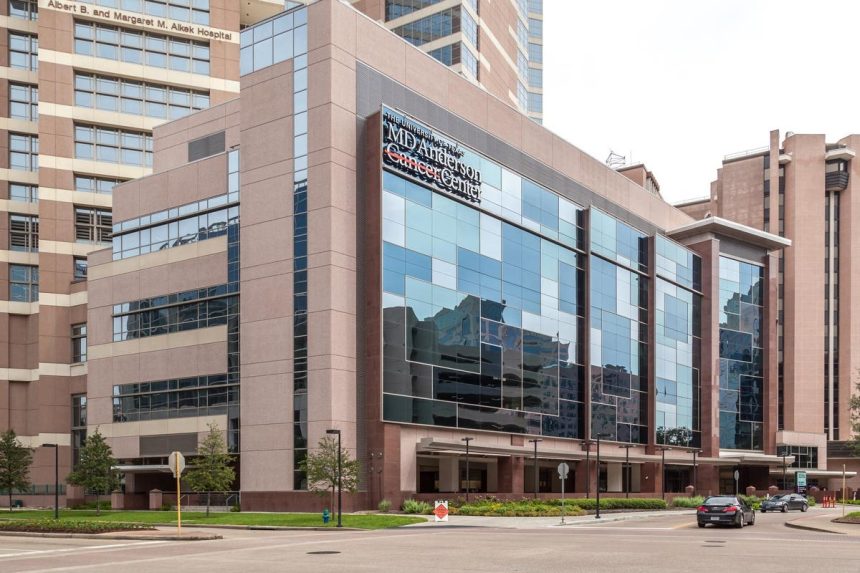The Biden Administration has announced the award of $50 million – spread over five years – to sponsor five university-based centers to study and reduce the effects of persistent poverty on cancer incidence and outcomes.
Coordinated by the National Cancer Institute (NCI), the new Persistent Poverty Initiative will address factors associated with chronic poverty that affect cancer care and prognosis.
With the investment, five Centers for Cancer Control Research in Persistent Poverty Areas will be created to tackle several priorities associated with the Cancer Moonshot, including reducing poverty-associated risks of cancer and preventing more cancers by reducing tobacco use and improving nutrition.
Persistent poverty areas are defined as those where, for the past 30 years, 20% or more of the population has lived below the federal poverty line. According to NCI, people who live in such areas have a higher incidence of cancer, experience delays in cancer diagnosis and treatment, and are more likely to die from cancer than people who do not live in poverty. However, there has been limited research on how to improve cancer outcomes in persistent poverty areas. The new centers are intended to address that gap in understanding.
“Persistent poverty is a place-based and community phenomenon that reflects a failure of the structures and institutions in society, including health care,” said Shobha Srinivasan, Ph.D., senior advisor for health disparities and health equity in NCI’s Division of Cancer Control and Population Sciences. “Conducting research to understand the connections between institutions — such as social, economic, and health systems — and persistent poverty is the only way to inform changes to social conditions and determinants of health that will ultimately improve overall health, cancer control, and cancer outcomes.”
Each center will work with low-income communities to implement and measure the effectiveness of interventions for cancer control and prevention, follow-up care, and survivorship.
They will conduct research in areas such as reducing obesity, improving nutrition, increasing physical activity, helping people quit smoking, and improving living conditions through supplemental income. In addition, the centers will help train early-career investigators to work with underserved communities on cancer-related topics.
The five awards were made to :
- Acres Homes Cancer Prevention Collaboration. Led by the University of Texas MD Anderson Cancer Center, this center will work with primarily Black/African American and Hispanic communities in northwest Houston to evaluate interventions in nutrition and physical activity to help prevent obesity and obesity-related cancer.
- The Center for Cancer Control in Persistent Poverty Areas. This center will be led by the University of Alabama at Birmingham. It will work with Black/African American communities in Jefferson County, Alabama, to evaluate interventions aimed at reducing cancer disparities by improving living environments and promoting healthy activities. The center will also test diet and exercise interventions for cancer survivors.
- The Upstream Center. Led by Stanford University, in collaboration with the University of California, San Francisco and the University of California, Davis, this center will work with Hispanic and Asian American communities in northern California to assess how state programs for guaranteed basic income affect cancer outcomes. It will also test whether the earned income tax credit promotes the adoption of healthy behaviors related to reducing colorectal cancer risk. “Poverty limits people’s ability to be healthy,” said David Rehkopf, ScD, director of the Stanford Center for Population Health Sciences and one of the center’s lead investigators. “When you’re living in poverty, paying your bills and getting food to eat takes time and resources and absorbs a lot of your mental bandwidth. The UPSTREAM Research Center will investigate what happens when we address poverty directly. If we mitigate some of this stress and give more resources to people, do we reduce cancer risk factors?”
- The Center for Social Capital will be led by the Weill Cornell Medicine and Columbia University, along with the SUNY Downstate Health Sciences University. This center will work with Black/African American, Caribbean American, and Hispanic communities in the South Bronx, north-central Brooklyn, Washington Heights, and Western Queens in New York City to test the effectiveness of cancer education and tobacco cessation programs in promoting multigenerational health.
- HOPE & CAIRHE 2gether is being headed by the Huntsman Cancer Institute’s Center for Health Outcomes and Population Equity at the University of Utah, in partnership with the Montana State University Center for American Indian and Rural Health Equity. This center will work with primarily Hispanic communities in Utah and American Indian communities in rural areas of Montana, Oregon, South Dakota, and Wisconsin to test interventions for commercial tobacco cessation and obesity prevention.
Read the full article here





